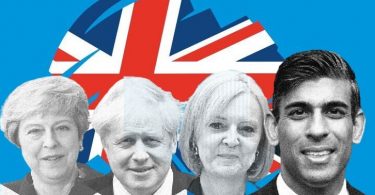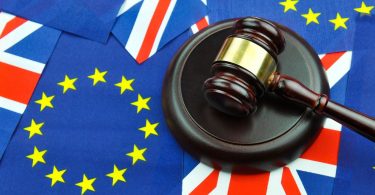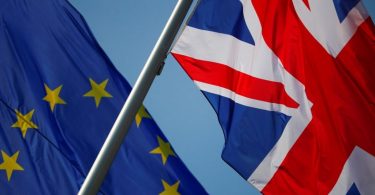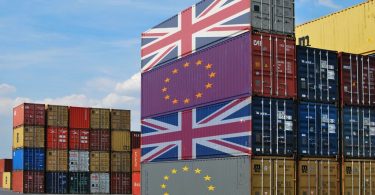In a busy week for Lawyers for Britain, Chairman Martin Howe QC was a member of the ‘Star Chamber’ group of lawyers tasked by the ERG and the DUP to advise them about the outcome of the negotiations between Attorney General Geoffrey Cox and the EU to try to avoid the UK being trapped in the backstop Protocol.
After a last minute dash by the Prime Minister to Strasbourg, three complex new documents were released just before midnight on Monday 11 March, the day before the vote. The Prime Minister claimed these were “legally binding changes, with comparable legal weight to the Withdrawal Agreement, to reduce the risk that the EU could deliberately keep the UK in the backstop indefinitely“.
After working through the night, the Star Chamber released their conclusions on the morning of the vote, which were repeated in a fully reasoned legal opinion the next day: Star-Chamber-Reasoning-Conclusions
The verdict was clear – the extra documents negotiated by the government “do not materially change the position the UK would find itself in if it were to ratify the WA.”
At the same time the Attorney General released his own advice: AG Legal_Opinion_on_Joint_Instrument_and_Unilateral_Declaration
The Attorney claimed that some aspects of the documents resulted in “reduced risk”, but at the end accepted that:
… the legal risk remains unchanged that if through no such demonstrable failure of either party, but simply because of intractable differences, [a negotiating deadlock] does arise, the United Kingdom would have, at least while the fundamental circumstances remained the same, no internationally lawful means of exiting the Protocol’s arrangements, save by agreement.”
Another legal opinion was released the same day, by Lord Anderson of Ipswich QC and two other barristers, instructed by the People’s Vote Campaign. A shorter opinion was also released on the same day, by Philippe Sands, Professor of Public International Law at UCL and Sir David Edward, former UK judge on the ECJ.
Martin Howe QC commented: “The conclusions of the Anderson opinion track our own with remarkable accuracy, with only differences of emphasis on minor points. The Sands/Edward opinion is shorter, but comes to the same conclusions with the authority of two leading lawyers who have experience of sitting on international arbitrations. I think this shows that, despite the very different political views of the audiences we were producing the opinions for, all these teams have been determined to maintain the highest standards of objective legal accuracy and people should have confidence that our conclusions are right.”
Vienna Convention shenanigans
After the motion to approve the deal was heavily defeated in the House of Commons on Tuesday 12 March, a new hare started running. The argument is that under Article 62 of the Vienna Convention on the Law of Treaties (or under customary international law as codified in that article) it could be possible for the UK to argue if it had got stuck in the backstop that there was a “fundamental change of circumstances” that would allow the UK to escape from the backstop.
This argument was contained in three paragraphs on a piece of paper that were said to have been penned by the Attorney General and to represent his view but for some reason were not included in the final version of his formal advice.
On 14 March the ‘Star Chamber’ issued a Supplemental Opinion with the following conclusions:
- The notion that Art. 62 VCLT gives the UK a “clear and undoubted” basis for terminating the Withdrawal Agreement is badly misconceived.
- Art. 62 VCLT, given the high burden that a State must meet to use it, and given the extreme reluctance of international courts and tribunals to accept it, supplies no assurance whatsoever that the UK could terminate the Withdrawal Agreement in a lawful manner.
- The ECJ’s Advocate-General himself has said that a matter of EU law “cannot depend on… the application of a controversial point of international law such as rebus sic stantibus”, a conclusion affirmed repeatedly by the ECJ.
For those not satisfied with the opinion of the ‘Star Chamber’, other leading lawyers have expressed the same view. Leading public international lawyer Prof Philippe Sands QC, who argued the leading ICJ case on Article 62 as counsel, said in an article titled Geoffrey Cox has no grounds to change his mind on the Northern Ireland backstop:
Article 62 cannot be invoked where the circumstance that arises – the indefinite or extended application of the backstop – has been foreseen by the withdrawal agreement. Accordingly, it can offer no assistance. The argument that it could be invoked if negotiations broke down and the backstop pertained indefinitely is hopeless. It is not even arguable. Nor is the idea that the UK could somehow adopt its own interpretation, or laws, to get around the problem. The withdrawal agreement is an international obligation which trumps domestic law.”
He also pointed out that the UK could not act unilaterally since the matter would have to come before the arbitral tribunal established under the Withdrawal Agreement.
And on 17 March, Lord Anderson’s counsel team produced another opinion on this Vienna Convention argument, which concluded that:
There is no scope for an argument that a breakdown in negotiations could amount to a fundamental change of circumstances, not least because this is not only foreseeable but has been foreseen by the UK and is provided for in the Protocol.”
The Anderson team (see para 21) also disagreed with the view expressed by Lord Pannick QC (letter to The Times, 15 March 2019) that there would be a fundamental change of circumstances, justifying the invocation of Article 62 VCLT, if “the UK and the EU were unable to reach an agreement on Northern Ireland, despite good faith negotiations and despite the arbitration procedures, and if the UK were therefore to be faced (against its will) with a permanent backstop arrangement”.
They rejected Pannick’s view because Art.62 requires that the “fundamental change of circumstances” must be “not foreseen by the parties” when the treaty is concluded, and plainly the prospect of deadlock was not only foreseeable but actually foreseen. They also thought that it could not “plausibly be argued” that such an event would radically transform the obligations to be performed under the treaty, another requirement for Art.62 to apply.
The Pannick letter was also criticised on similar grounds in separate letters to The Times on 16 March from David Wolfson QC and Lord Thomas of Gresford QC, both of whom pointed out that Lord Pannick had omitted to deal with the requirement that the fundamental change of circumstances must be “not foreseen by the parties”, and that the possibility of a negotiation deadlock was clearly foreseen.
Another letter in The Times on 19 March 2019 from Alan Boyle, Professor Emeritus of Public International Law at Edinburgh University, pointed out:-
A fundamental change of circumstances can only terminate obligations under a treaty if the change is not one the parties have foreseen and provided for. … The backstop has the inevitable effect of limiting our negotiating options: in short we have to do a deal that satisfies the EU and then stay in it unless something else is agreed. To try to use Article 62 (or the protocol) to avoid that outcome would never survive the inevitable reference to arbitration or the European Court of Justice. Like it or not, the attorney-general’s initial advice was correct. The way to avoid the backstop is to do a deal on trade and the single market — or to leave with no deal at all.”
Chairman of Lawyers for Britain Martin Howe QC commented:
The consensus of the lawyers who have looked into this argument under Article 62 of the Vienna Convention is that it is hopeless, and that consensus includes public international lawyers of the highest standing. Even if it weren’t hopeless it would have to be pursued through months or years of international arbitration prodeedings with a very high risk of a catastrophic adverse verdict against the UK. I have been alarmed to see at least one major politician last weekend (16-17 March) who is apparently basing his views about whether we can get out of the backstop on one letter to The Times which clearly has failed to deal with a vital element of the argument, the requirement for unforeseeability. I think that politicians have a duty to base their decisions on vital national matters on a fuller and more careful review of the available legal advice.”







